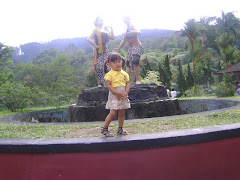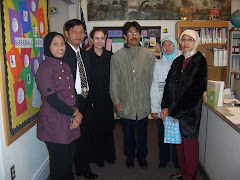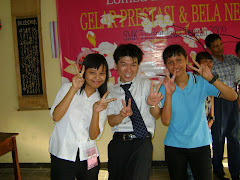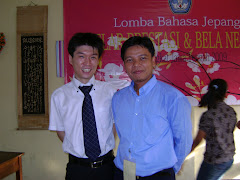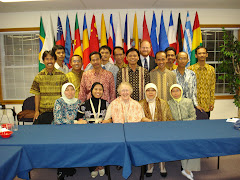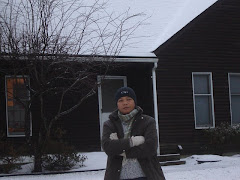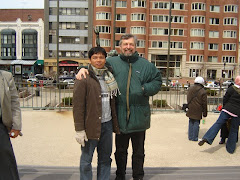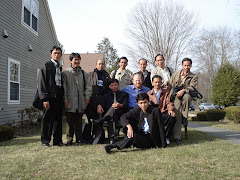Saturday, June 23, 2007
COMMUNITY COLLEGE SUMMIT INITIATIVE PROGRAM
The Bureau of Educational and Cultural Affairs of the United States Department of State is pleased to announce the Community College Summit Initiative Program. This new international educational exchange program enables individuals from Brazil, Egypt, Indonesia, Pakistan, Turkey and South Africa to study at a community college in the United States to develop professional skills. Eligible fields are Business Management and Administration; Tourism and Hospitality Management; Health Professions, including Nursing; Media; Information Technology; Security and Public Safety; and Engineering Science. Eligibility To apply to the program, candidates must: Have completed a secondary school education (High School Diploma); Have relevant work experience or be currently working in the field in which they are applying; Have English language skills that provide a basis for enrolling in academic coursework following up to 6 months of intensive English language study in the U.S.; Submit a complete application; and Minimum Institutional TOEFL score 500 or TOEIC score 650 (only scores less than 2 years old are valid). Those who are currently enrolled in S1 or S2 Programs or D3, or have completed S1, S2, D3, are not eligible for this program. U.S. Program The Community College Summit Initiative Program will provide funding for round-trip airfare to the U.S.; a living allowance and housing or home stay during English language, academic, and practical training program components; tuition costs; health insurance; and cultural enhancement activities. Students will be hosted in groups by community colleges competitively selected to participate in the program. Programs may range from six months to two years in duration and may result in either a Certificate or an Associate Degree. Students are required to return home at the end of their program and may not transfer to a four-year U.S. academic institution. This is a specialized degree and certificate program, designed to enhance candidate’s ability in the fields in which they are currently employed. It is not a “2+2” program. Selection and Screening In Indonesia the American Indonesian Exchange Foundation (AMINEF), is responsible for advertising the program and for recruiting and nominating candidates for further consideration as well as administration of grantees through the process. Educational experts in the U.S. will make the final selection and placement decisions for the approval of the Bureau of Educational and Cultural Affairs. Submission of Applications The American Indonesian Exchange Foundation (AMINEF) is administering this program on behalf of the Bureau of Educational and Cultural Affairs of the United States Department of State. Therefore, please submit your application materials (original application and two copies) to AMINEF, Gedung Balai Pustaka Lt. 6, Jl. Gunung Sahari Raya No. 4, Jakarta 10720 NO LATER November 1, 2007. You may download the hard copy of the application at the AMINEF website, www.aminef.or.id. For additional information, contact infofulbright@aminef.or.id. We do not accept email applications. Hard copies must be sent or delivered to American Indonesian Exchange Foundation
Tuesday, June 12, 2007
Remedial
Hi guys,
Nice to see you again. Keep smiling, please..
This about the assignment you have to accomplish regarding with your remedial.
Please answer the following questions clearly!
1. Do you think internet can help you improve your English?
2. What would you like to be after graduating from SMKN 1 Cilacap?
3. Have you ever become a volunteer (sukarelawan) in social life?
4. If you have, please tell me when, what, where did you do ?
5. Indonesia is wellknown for Solidarity and Togetherness (Gotong Royong). Would you please explain about it?
Send your answers to one of my e-mails.
Have fun!
Mr. N
Nice to see you again. Keep smiling, please..
This about the assignment you have to accomplish regarding with your remedial.
Please answer the following questions clearly!
1. Do you think internet can help you improve your English?
2. What would you like to be after graduating from SMKN 1 Cilacap?
3. Have you ever become a volunteer (sukarelawan) in social life?
4. If you have, please tell me when, what, where did you do ?
5. Indonesia is wellknown for Solidarity and Togetherness (Gotong Royong). Would you please explain about it?
Send your answers to one of my e-mails.
Have fun!
Mr. N
Tuesday, May 8, 2007
DEBATE CLUB
What is a debate?
A debate is a structured argument. Two sides speak alternately for and against a particular contention usually based on a topical issue. Unlike the arguments you might have with your family or friends, however, each person is allocated a time they are allowed to speak for any interjections are carefully controlled. The subject of the dispute is often prescribed so you may find yourself having to support opinions with which you do not normally agree. Debating has strict rules of conduct and quite sophisticated arguing techniques. A speaker will often be in a position where he or she has to argue something in contrast with what he or she believes in. You also have to argue as part of a team, being careful not to contradict what others on your side have said.
Start a debate club
Debate clubs work best when there is a strong sense of group identity, when members feel that they are part of something. The individual debater should not feel that he or she is a soloist, meeting casually with other soloists for the sake of a competition, only to go off independently afterward. Rather, the debater should feel that the debate club is like a symphony orchestra, which exists as an ongoing corporate entity. When this feeling exists, the reward is a broad sense of well being. Everyone in the group shares the joys of victory; the disappointment of loss, when shared, is assuaged. A sense of group identity is not a mystical goal that can be achieved only through a lucky combination of people. Rather, it is something that can be created by concrete steps. These steps involve the management of space, the management of time, and the organization of the club structure.
The Debate Club in the Community of the School and Beyond
The Debate Club in the Community of the School and Beyond Obviously, the benefits of debate are enjoyed most by the people who actually do it. And yet, there is much to be said for listening to debates as well: spectators often learn a new way of thinking about a problem or an issue. It makes sense, then, to fashion a strong public profile for the debate team. Spectators can be invited both from within the school community and from outside of it. (For the uninitiated, the team can provide materials that outline the rules and procedures of debate.) As a matter of habit, the debate club should publicize its competitions. It should announce debate resolutions to the community in advance of the debate. And certainly, the debate club should publicize its results. A team that does well deserves the recognition of the school community. Sometimes this means making use of the school newspaper or announcement system. Some clubs also publish their own newsletters.
The English Debate Club of SMK N 1 Cilacap
A debate is a structured argument. Two sides speak alternately for and against a particular contention usually based on a topical issue. Unlike the arguments you might have with your family or friends, however, each person is allocated a time they are allowed to speak for any interjections are carefully controlled. The subject of the dispute is often prescribed so you may find yourself having to support opinions with which you do not normally agree. Debating has strict rules of conduct and quite sophisticated arguing techniques. A speaker will often be in a position where he or she has to argue something in contrast with what he or she believes in. You also have to argue as part of a team, being careful not to contradict what others on your side have said.
Start a debate club
Debate clubs work best when there is a strong sense of group identity, when members feel that they are part of something. The individual debater should not feel that he or she is a soloist, meeting casually with other soloists for the sake of a competition, only to go off independently afterward. Rather, the debater should feel that the debate club is like a symphony orchestra, which exists as an ongoing corporate entity. When this feeling exists, the reward is a broad sense of well being. Everyone in the group shares the joys of victory; the disappointment of loss, when shared, is assuaged. A sense of group identity is not a mystical goal that can be achieved only through a lucky combination of people. Rather, it is something that can be created by concrete steps. These steps involve the management of space, the management of time, and the organization of the club structure.
The Debate Club in the Community of the School and Beyond
The Debate Club in the Community of the School and Beyond Obviously, the benefits of debate are enjoyed most by the people who actually do it. And yet, there is much to be said for listening to debates as well: spectators often learn a new way of thinking about a problem or an issue. It makes sense, then, to fashion a strong public profile for the debate team. Spectators can be invited both from within the school community and from outside of it. (For the uninitiated, the team can provide materials that outline the rules and procedures of debate.) As a matter of habit, the debate club should publicize its competitions. It should announce debate resolutions to the community in advance of the debate. And certainly, the debate club should publicize its results. A team that does well deserves the recognition of the school community. Sometimes this means making use of the school newspaper or announcement system. Some clubs also publish their own newsletters.
The English Debate Club of SMK N 1 Cilacap
Subscribe to:
Comments (Atom)
